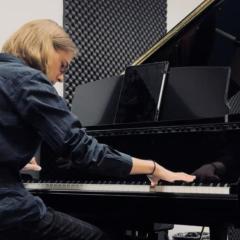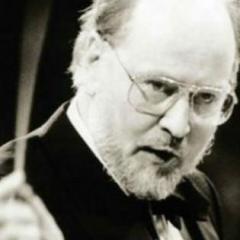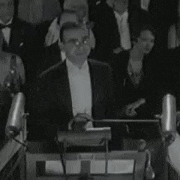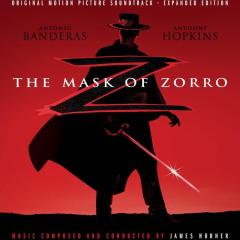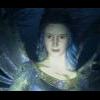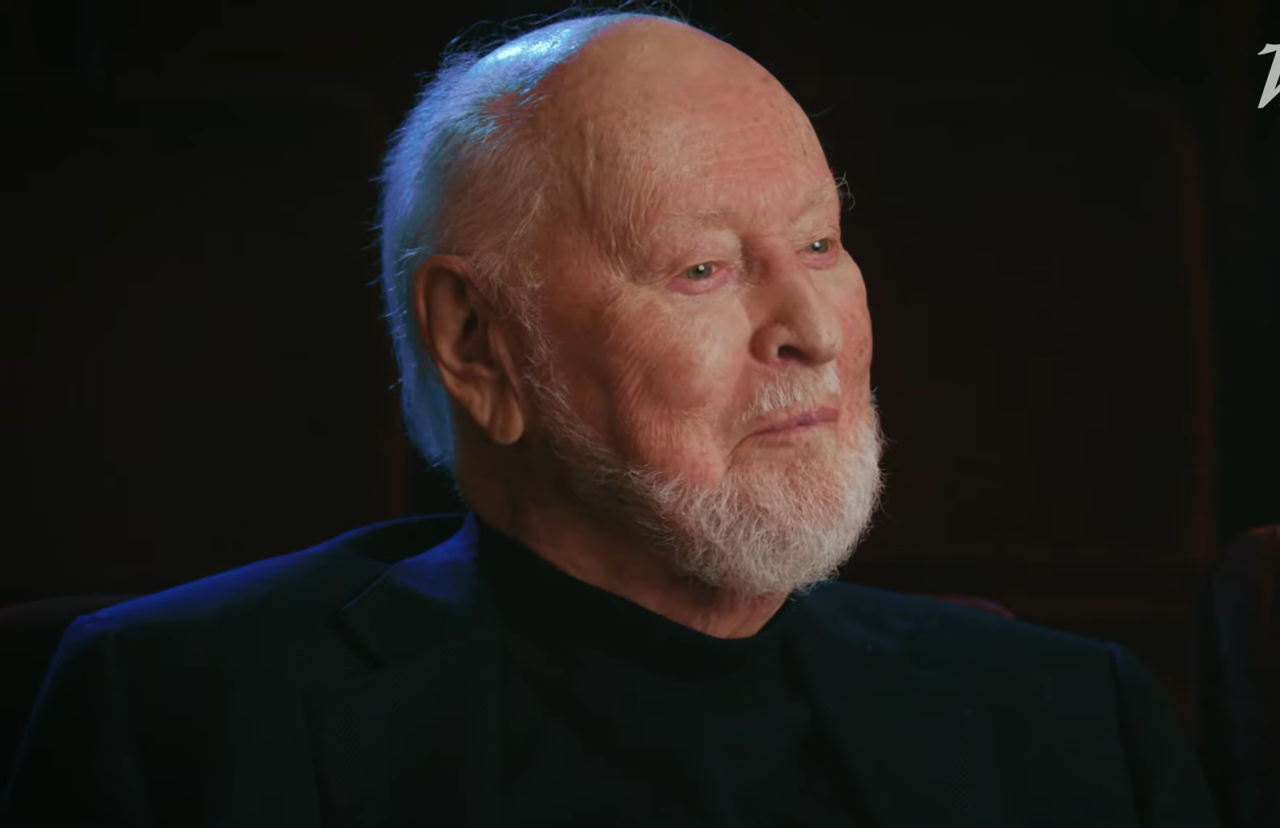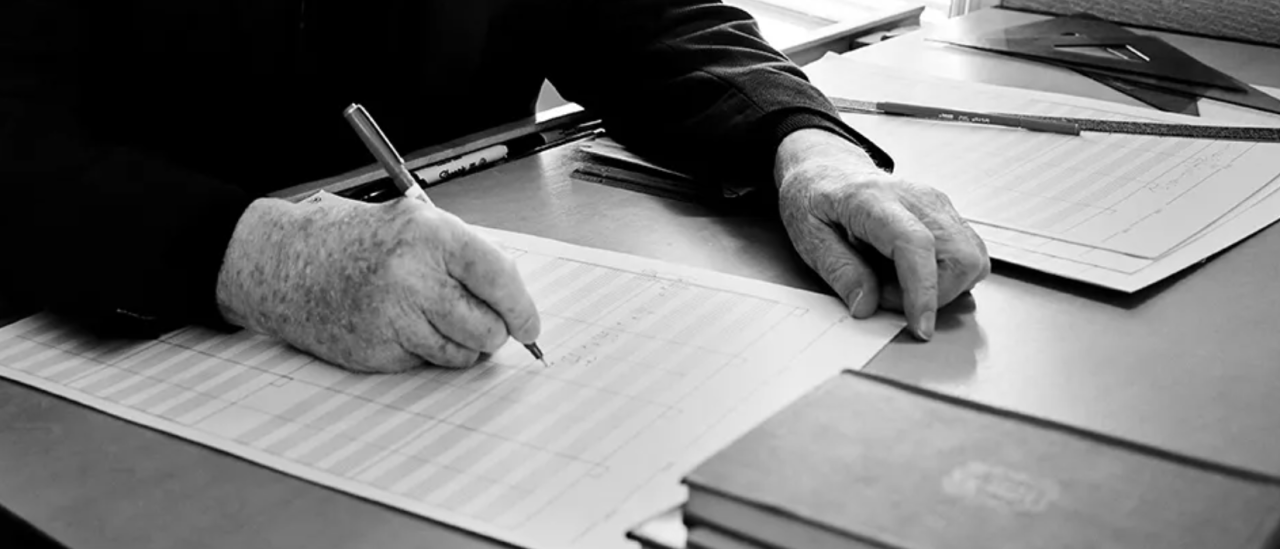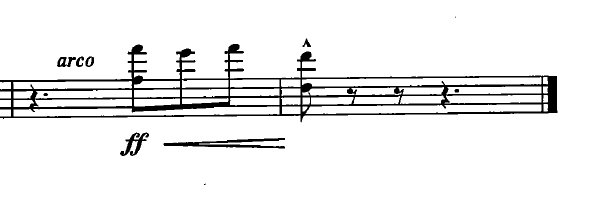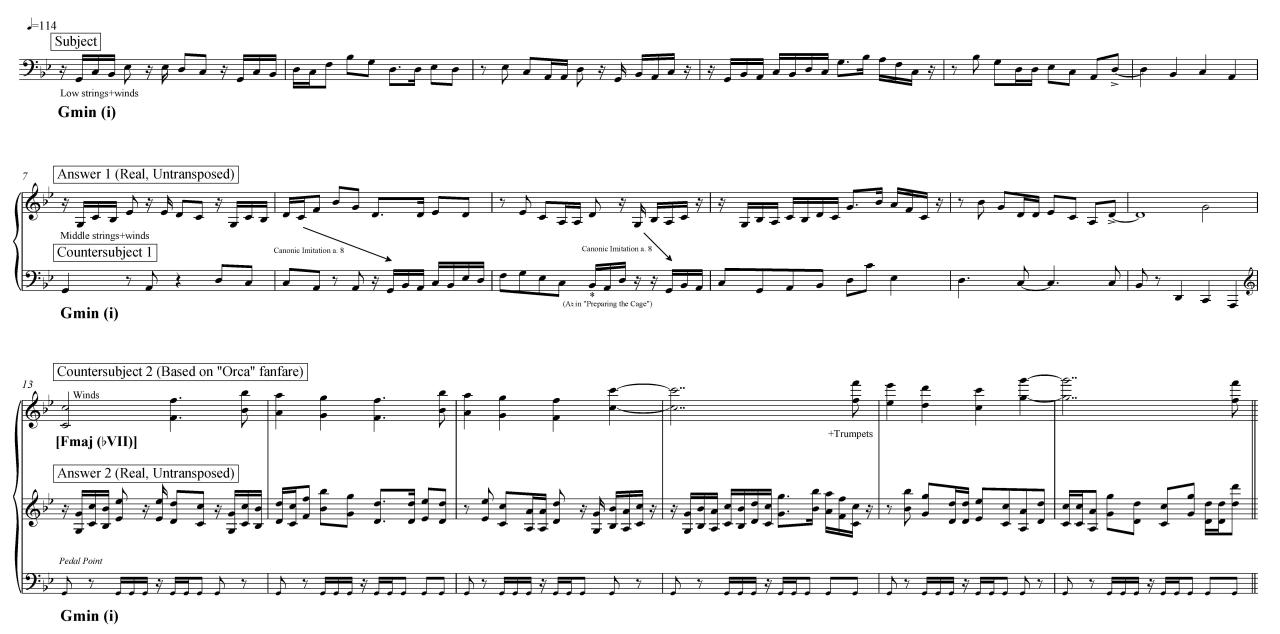-
Posts
733 -
Joined
-
Last visited
-
Days Won
18
Falstaft last won the day on July 8 2023
Falstaft had the most liked content!
Contact Methods
-
Website URL
franklehman.com
Profile
-
Location
Tufts
Recent Profile Visitors
7,963 profile views
-
 Falstaft reacted to a post in a topic:
Star Wars Episode III: Revenge of the Sith
Falstaft reacted to a post in a topic:
Star Wars Episode III: Revenge of the Sith
-
 Falstaft reacted to a post in a topic:
DIAGON ALLEY TRACK MOVIE vs SOUNDTRACK ALBUM
Falstaft reacted to a post in a topic:
DIAGON ALLEY TRACK MOVIE vs SOUNDTRACK ALBUM
-
 Falstaft reacted to a post in a topic:
DIAGON ALLEY TRACK MOVIE vs SOUNDTRACK ALBUM
Falstaft reacted to a post in a topic:
DIAGON ALLEY TRACK MOVIE vs SOUNDTRACK ALBUM
-
 Falstaft reacted to a post in a topic:
DIAGON ALLEY TRACK MOVIE vs SOUNDTRACK ALBUM
Falstaft reacted to a post in a topic:
DIAGON ALLEY TRACK MOVIE vs SOUNDTRACK ALBUM
-
 Bayesian reacted to a post in a topic:
NEW book by Frank Lehman - The Skywalker Symphonies: Musical Storytelling in Star Wars
Bayesian reacted to a post in a topic:
NEW book by Frank Lehman - The Skywalker Symphonies: Musical Storytelling in Star Wars
-
 Madmartigan JC reacted to a post in a topic:
NEW book by Frank Lehman - The Skywalker Symphonies: Musical Storytelling in Star Wars
Madmartigan JC reacted to a post in a topic:
NEW book by Frank Lehman - The Skywalker Symphonies: Musical Storytelling in Star Wars
-
 enderdrag64 reacted to a post in a topic:
NEW book by Frank Lehman - The Skywalker Symphonies: Musical Storytelling in Star Wars
enderdrag64 reacted to a post in a topic:
NEW book by Frank Lehman - The Skywalker Symphonies: Musical Storytelling in Star Wars
-
 BrotherSound reacted to a post in a topic:
NEW book by Frank Lehman - The Skywalker Symphonies: Musical Storytelling in Star Wars
BrotherSound reacted to a post in a topic:
NEW book by Frank Lehman - The Skywalker Symphonies: Musical Storytelling in Star Wars
-
 Taikomochi reacted to a post in a topic:
NEW book by Frank Lehman - The Skywalker Symphonies: Musical Storytelling in Star Wars
Taikomochi reacted to a post in a topic:
NEW book by Frank Lehman - The Skywalker Symphonies: Musical Storytelling in Star Wars
-
 oierem reacted to a post in a topic:
NEW book by Frank Lehman - The Skywalker Symphonies: Musical Storytelling in Star Wars
oierem reacted to a post in a topic:
NEW book by Frank Lehman - The Skywalker Symphonies: Musical Storytelling in Star Wars
-
 crocodile reacted to a post in a topic:
NEW book by Frank Lehman - The Skywalker Symphonies: Musical Storytelling in Star Wars
crocodile reacted to a post in a topic:
NEW book by Frank Lehman - The Skywalker Symphonies: Musical Storytelling in Star Wars
-
It's definitely a challenge, given how frustratingly incomplete and jumbled the score's presentation is. I'm not approaching any of the 9 as if they need any special defending. But in the case of TROS, I do feel I can offer a small corrective to what I see as a kind of mistreatment of Williams's swan song, both by the filmmakers and (more vexingly to me) the general public. I doubt there will be an audiobook -- it'd be unprecedented if there were for this particular book series (the Oxford Music/Media line). Though who knows... with AI emulation these days, maybe someone could enter all the text in and have it read back to you in the voice of Ian McDiarmid! There certainly will be an online companion though that has lots of short clips and such on it. I'm sure I'll cite Kalinak's chapter somewhere, though it's not especially central to what I'm doing. I don't know Evensen's SW/Wagner work, though, trust me, that angle is something I've got plenty to say about. Particularly since I think a lot of the existing scholarly treatment of the Williams/Wagner connection is at best superficial. But the man is a black hole: get too close and he completely dominates whatever subject you thought you were writing about before. So I'm trying to take care to keep the focus on JW rather than him.
-
 Falstaft reacted to a post in a topic:
NEW book by Frank Lehman - The Skywalker Symphonies: Musical Storytelling in Star Wars
Falstaft reacted to a post in a topic:
NEW book by Frank Lehman - The Skywalker Symphonies: Musical Storytelling in Star Wars
-
 Jay reacted to a post in a topic:
NEW book by Frank Lehman - The Skywalker Symphonies: Musical Storytelling in Star Wars
Jay reacted to a post in a topic:
NEW book by Frank Lehman - The Skywalker Symphonies: Musical Storytelling in Star Wars
-
 Falstaft reacted to a post in a topic:
John Williams tapped to score Oliver Stone’s Donald Trump (2027)
Falstaft reacted to a post in a topic:
John Williams tapped to score Oliver Stone’s Donald Trump (2027)
-
 Falstaft reacted to a post in a topic:
BREAKING NEWS: Disney Records to never release STAR WARS & INDIANA JONES Complete Collection Boxsets
Falstaft reacted to a post in a topic:
BREAKING NEWS: Disney Records to never release STAR WARS & INDIANA JONES Complete Collection Boxsets
-
 Bofur01 reacted to a post in a topic:
NEW book by Frank Lehman - The Skywalker Symphonies: Musical Storytelling in Star Wars
Bofur01 reacted to a post in a topic:
NEW book by Frank Lehman - The Skywalker Symphonies: Musical Storytelling in Star Wars
-
 ChrisAfonso reacted to a post in a topic:
NEW book by Frank Lehman - The Skywalker Symphonies: Musical Storytelling in Star Wars
ChrisAfonso reacted to a post in a topic:
NEW book by Frank Lehman - The Skywalker Symphonies: Musical Storytelling in Star Wars
-
 Falstaft reacted to a post in a topic:
Your Favourite Jerry Goldsmith Score
Falstaft reacted to a post in a topic:
Your Favourite Jerry Goldsmith Score
-
It's just amazing, isn't it? On one hand, I think "The Meld" as we all know from the film it is a masterpiece and one of the most skillful and effective musical climaxes in Goldsmith's filmography. (Which may be close to saying it's one of the most skillful & effective musical climaxes/payoffs in film, period!) On the other hand, the rejected cue is simply magnificent, and clearly works wonders with the scene.
-
Wow, thanks everyone! Obviously, the most important question to address is how I got those italics. Simple! https://lingojam.com/FacebookFonts As for the timeframe: I have over a year to hand in the finished manuscript, but my goal is to have it completed well before that. It's a big book, and publishing is a very slow process. But everything so far is proceeding as I have forseen... It's not a guide to the scores really, but something more holistic, with each chapter looking at cues from all three trilogies from some angle: musical referentiality, thematic transformation, concert arrangements, and so on. There will be a ton of music examples (all my own annotated transcriptions as usu.), hopefully presented in an accessible way that draws in people who can't read sheet music. I know notation and music-theory jargon can be intimidating, and I'm hyper-aware of the potential gatekeeping effect it could on an already niche readership. But at the same time, I think we can all agree this music warrants deep and serious analysis! It's a balancing act for sure... Alas, I don't have special access to recordings, and can't speak to official expanded album releases, as amazing as they would be! Incidentally: I don't see it trumpeted nearly enough on these boards but Chloé Huvet came out with a book on SW music (mainly the OT and PT) a couple years ago that is absolutely brilliant and similarly synthetic in approach. The book is in French, which limits the audience, but it's worth getting your hands on if only for the fantastic music examples and charts. The amount of insight in her prose is incredible too, and it's been a major source of inspriation to me.
-
 Falstaft reacted to a post in a topic:
NEW book by Frank Lehman - The Skywalker Symphonies: Musical Storytelling in Star Wars
Falstaft reacted to a post in a topic:
NEW book by Frank Lehman - The Skywalker Symphonies: Musical Storytelling in Star Wars
-
This is true for every* single JW score -- his sketches are for all intents and purposes complete. Which is not to minimize the importance of the orchestrator in any way, just to say that their role is, in JW's words and their own, "stenographic." It is indeed unusual for a film composer to do this, but JW's not your regular film composer! *Caveat: There are instances of timesaver cues from scores like HP:COS, Indy 5, and some bits of the Sequels where the orchestrator's task is also one of adaptation of pre-existing JW music. We on this JWfan board like to worry disproportionately about these!
-
 Falstaft reacted to a post in a topic:
Star Wars Prequel Music Resource (part 2)
Falstaft reacted to a post in a topic:
Star Wars Prequel Music Resource (part 2)
-
This is a hard one! My first thought was something from the Essay for Strings -- the rising octatonic sixteenth run and extremely chromatic, disjunct melody that follows is something that happens a lot in that piece, but never in exactly this way. Then I remembered that a certain cue starts with rising octatonic lines in several instrumental groups. Very tricky for not giving us the primary melodic line, @Manakin Skywalker!
-
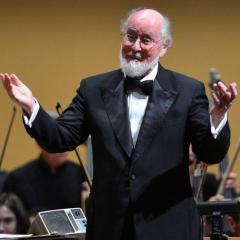
John Williams on Variety Cover (article & video)
Falstaft replied to JNHFan2000's topic in JOHN WILLIAMS
-

John Williams on Variety Cover (article & video)
Falstaft replied to JNHFan2000's topic in JOHN WILLIAMS
-
A little past his birthday, but you all may enjoy this little segment with KCRW where we celebrated Williams's lesser-known scores. (Well, lesser-known to the broad public, I'm sure none of this will be news to the majority of JWfans!) https://www.kcrw.com/news/shows/press-play-with-madeleine-brand/media-scotus-same-sex-weddings-music/john-williams-film-scores
-
You got it!
-
-
-
Here's to you, @Ricard! The importance of this site and this forum, to me and so many others, is hard to overstate.
-
It's really great, isn't it? I know enough about Williams's style of interviewing that a) his responses are often a little rehearsed and massaged and b) this one really does capture his incredible autobiographical memory and poetic sensibility towards his life and art. Also, I didn't know he remembered that the SW opening title initially began with that tiny run up! Who else remembers first listening to the "secret" track on the ANH Special Edition in 97 and just being blown away?!
-
Shark Cage is brilliant. The quartal organization of the subject is really nicely reflected in the Orca Theme. I had the Kent Kennan counterpoint book as an undergrad too, and it's excellent. But really, the best teacher is Bach. Just sit down with the Well Tempered Clavier some time. Start by flagrantly copying him. You'll pick up on the technique through imitation. Haha, my cocktail napkins are definitely not worth preserving! The whole talk isn't really fit for sharing in the state it's in. But this thread has given me a spur to revisit it and turn it into a proper article. Once I get this other big thing out of the way, it'll probably be my next JW project. Oh, and here's a "Guess That Score" challenge. Can anyone place where this canonic passage from Williams comes from, and why it may be an especially appropriate use of the technique?:


